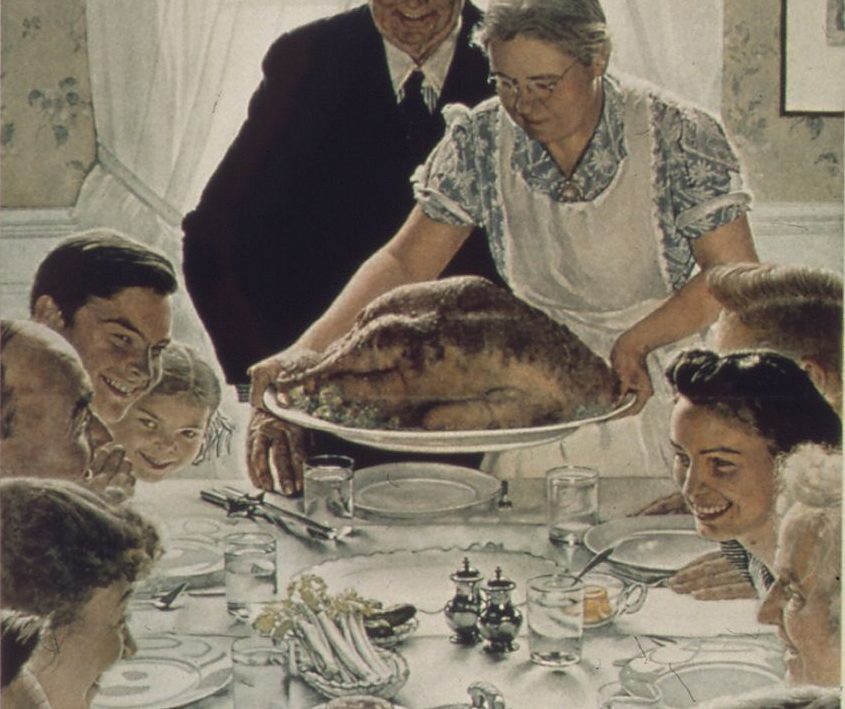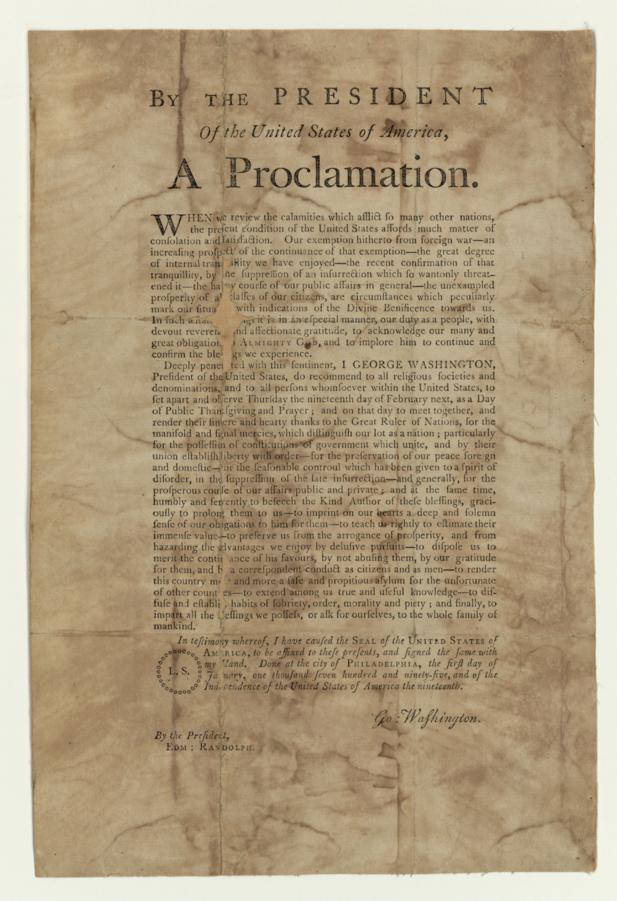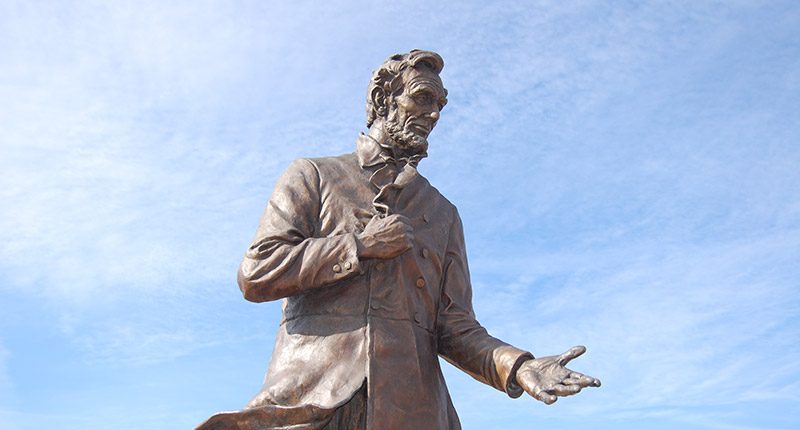Thanksgiving Wasn't Always a Source of National Unity.
Choosing Gratitude

"Gratitude is always in one’s own power." –John Adams
In a letter to his beloved wife, Abigail, John Adams wrote that “Gratitude is always in one’s power.” We either choose to be grateful or give way to cynicism and victimhood.
Today’s Anti-Americanism is cynical and narcissistic. It is essentially a culture of death, a false “progress” toward the denial of being. Based on an ideology that revels in the fluidity of history, it aims to destroy the remembrance of things past that might illuminate the order of things.
An ideologue explicitly denies the complexity of human life. As Hannah Arendt observed, “Ideologies are never interested in the miracle of being. They are historical, concerned with becoming and perishing, with the rise and fall of cultures, even if they try to explain history by some ‘law of nature.’”
Since the perpetual overthrow of ordered principles is what drives anti-American ideologues, the last thing on their mind is gratitude. In fact, mockery of the true, the good, the beautiful, and the sacred differentiates an ideologue from an embodied human being, living in the fullness of his or her personhood.
What is gratitude? If we follow Adams’ words that “Gratitude is always in one’s own power,” we shall recognize that to be grateful is not some warm and fuzzy feeling. On the contrary, gratitude is an acceptance of oftentimes harsh circumstances. It is, in a way, a state of mind, but more than anything, gratitude is a state of one’s soul.
If I look through the rooms of my past, I see many instances of gratitude for the life I’ve been given. Despite the fact that I survived war in Bosnia, lived in a refugee camp in the Czech republic, and arrived as an immigrant to the United States, there have been moments of awe, beauty, and goodness amidst darknesses from which I saw no escape. I chose to recognize small glimpses of the sacred in the midst of vulgarities and atrocities of life, be it in a small piece of chocolate during the war when food was scarce, or reading Ovid’s Metamorphoses amid the absolute chaos of a refugee camp, or walking through the streets of Prague amused by the smallness of Kafka’s house, or persisting on educating myself in America despite the economic and existential burdens of being an immigrant.
Even before I came to America and became an American citizen, I was in awe of what the Founders of this country accomplished. To fight for freedom and liberty takes courage and love. To claim independence meant to accept the responsibility of one’s own actions and not to accept the rule of a tyrant. Is it naive of me to approach them with reverence and wonder—to be idealistic? Not at all. Gratitude for the creation of America allows us to see both the idealism and realism that is inherent in the American character.
Once we cease to recognize the good, honorable, and virtuous acts of other human beings, we have let the darkness prevail and allowed evil to grow: we have severed ourselves from the possibility of our own virtue—from the ever-encompassing possibility of being.
Losing knowledge of the difference between the sacred and profane gives rise to increasing dehumanization of others, and dehumanization doesn’t leave any room for dialogue. Gratitude, on the other hand, is relational. Whether we are in awe of the sacred or we recognize the inherent dignity of our fellow human beings (and thus the sacredness of life itself), such an encounter takes us outside of ourselves, waking us up from the slumber of indifference.
To step outside of ourselves is also to acknowledge both our finitude and potential flourishing. Unlike the false progressivism of the left (or any other anti-American ideology), true progress has its basis in an unchanging metaphysics rather than ever-changing ideologies that assault and aim to destroy ordered society.
We can choose to be perpetual victims looking for a group or government entity to provide us with the meaning of life and a personal identity without us having to develop our own individual, interior life. Or we can choose to be grateful and thus choose to be free.
The American Mind presents a range of perspectives. Views are writers’ own and do not necessarily represent those of The Claremont Institute.
The American Mind is a publication of the Claremont Institute, a non-profit 501(c)(3) organization, dedicated to restoring the principles of the American Founding to their rightful, preeminent authority in our national life. Interested in supporting our work? Gifts to the Claremont Institute are tax-deductible.
How Abraham Lincoln created Thanksgiving.
Thanksgiving remains one of our few unifying traditions.
We should be thankful for the sheer wonder of being.
The Genuinely American Debate over Federalism and Thanksgiving.
Allen Guelzo, Richard Brookhiser, Joseph Bottum, and Justin Dyer on the thought and action of Lincoln's Thanksgiving and his wrestling with God.






